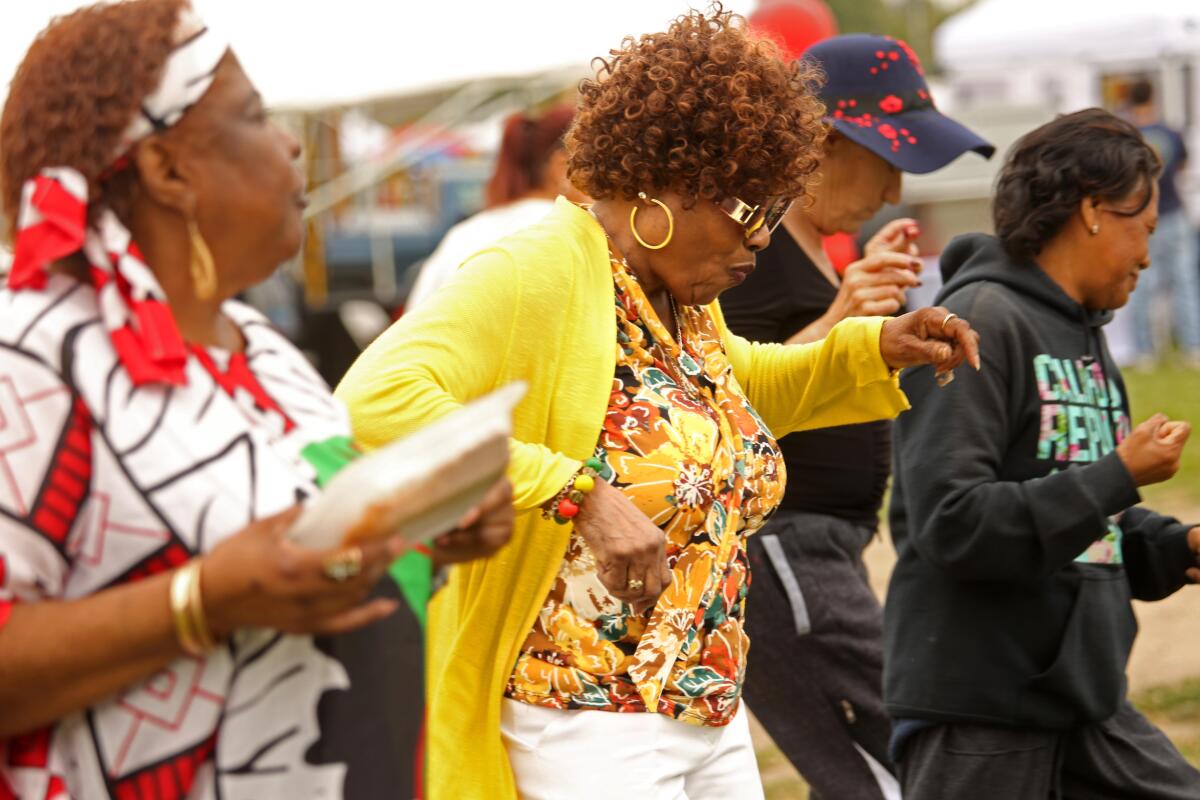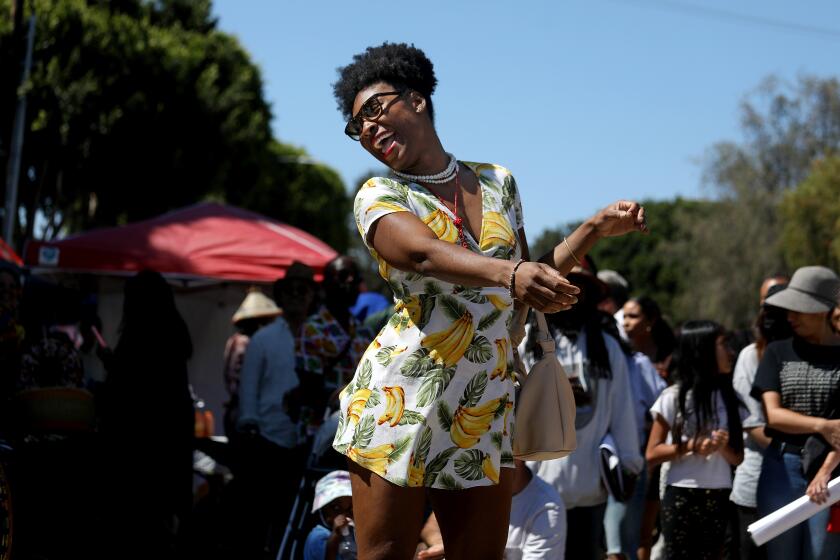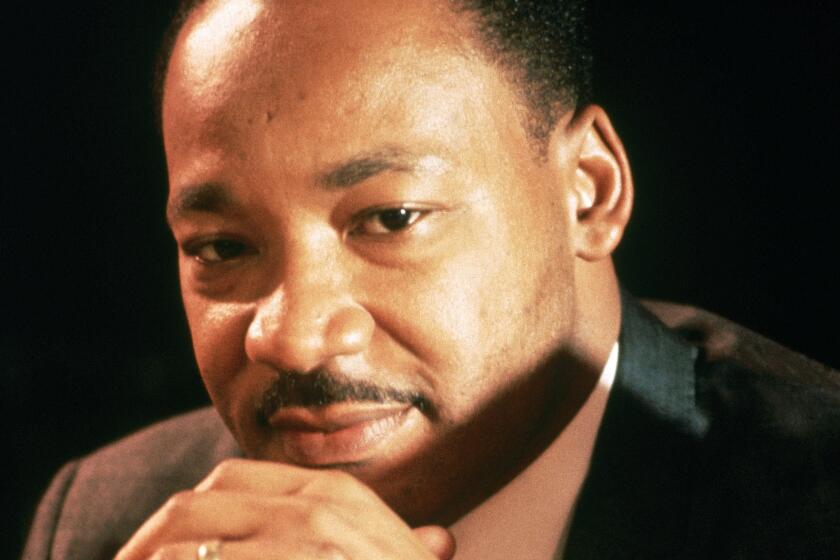Essay: A new way of looking at Juneteenth

If the United States is truly e pluribus unum, then today is the closest thing this nation has to an actual independence day. Its proper name reflects that: Juneteenth National Independence Day, as decreed in the bill President Biden signed two years ago to authorize the federal holiday.
However, it would be a mistake to consider Juneteenth purely a celebration of emancipation. As with most victories against racism, there is also a story of resistance to change. Even in Galveston, Texas, where the federal government arrived on June 19, 1865, to declare that all enslaved people must now be freed, the mayor forced those newly liberated back to work for no compensation, per historian Elizabeth Hayes Turner. By that time, white slavers had grown so accustomed to ignoring the Emancipation Proclamation, issued more than two years earlier, that even after Juneteenth, the institution of enslavement lingered on.
It’s best to understand precisely what are we celebrating: an end to the unpaid, torturous toiling of Black people to build white wealth. I don’t begrudge anyone enjoying a day off and a cookout, but it’s hard not to see the holiday as an underused opportunity to teach and learn about the history of Black labor.
Here is a sampling of Juneteenth festivities happening in L.A. County this weekend to commemorate “Freedom Day” or “Emancipation Day.”
For many of us, that starts within our own families, with tales of our forebears who migrated north, east and west after emancipation. “Enslaved people passed down the stories of who they were to their children,” said historian Blair L.M. Kelley, author of the new book “Black Folk: The Roots of the Black Working Class.” “They made sure that they understood their history. So, that physical memory that we have, there’s a desire amongst both the highly educated and the everyday person to pass that history down.”
It’s where Kelley begins “Black Folk,” a groundbreaking account of the Black working class in the generations that have come after Juneteenth. “The story that the book starts with is a story my mother told me all the time,” Kelley told me last week. It’s a story about her great-grandfather, a Georgia sharecropper cheated by a crooked plantation owner out of compensation. He took his family and headed north with Kelley’s maternal grandfather, only 14 at the time. This story and others in her book are eerily reminiscent of the many migration stories I’ve heard or read, including some from my own family.
“You can’t tell the story of the working class without talking about migration,” said Kelley, a distinguished professor of Southern studies at the University of North Carolina-Chapel Hill. “The reason we had to fight was because we just kept confronting all of this kind of corruption and evil over and over and over again.”
Since chattel slavery began here, Black worth and Black wealth have always been something to be fought over — and to be fought for. That story didn’t begin on Juneteenth, but it’s worth remembering that the emancipation we celebrate today did not grant Black folks the same equity in the nation their toil helped build.
We receive constant reminders of this. Though Black unemployment recently hit a record-low 5%, the racist abuses Black workers suffer in the workplace mirror many that our forebears suffered.
Martin Luther King Jr. Day is supposed to honor a man and cause that were all about making this country uncomfortable. The opposite is happening.
Most evident are the persisting and worsening wealth and pay gaps between white people and everyone else. The RAND Corporation reported in May that the median Black American household has about $24,000 in savings, investments, home equity and other elements of wealth. The median white household has roughly $189,000, a disparity that has grown in recent decades. Per the Center for American Progress, these gaps are wider for working Black women and their households, whether or not they are single or have children.
During the second quarter of 2020, when these gaps were increasing due to the COVID-19 pandemic, white Americans consisted of 60% of the U.S. population while holding 84% of U.S. household wealth — amounting to about $94 trillion. Black workers and their families held 4%, or $4.6 trillion, of household wealth.
How much would it take to eliminate this generational wealth disparity? About $3 trillion. (That is worth noting, especially as we wait patiently for the Reparations Task Force to give its report to Californians on July 1.)
It’s telling then, that when noting such injustices, the term “working class” too often centers white plight and ignores the vast, often underpaid contributions of Black workers to American society at-large.
“Black people always are the canary in the coal mine,” Kelley said. “If you elevate Black people, you are elevating a working-class America, period.”
This is why I find the timing of Kelley’s book fortuitous. Juneteenth recognizes and honors a struggle that continues. Like Labor Day, it recognizes the past successes and undermining of workers as well as the unfinished work left to secure equity for them. Amid increasing efforts to criminalize and erase Black history, what better day to shine a spotlight on what Black labor has endured, and the overdue compensation their descendants are owed?
“This is all real stuff that actually happened in this country,” Kelley said. “And it doesn’t mean that anybody needs to feel defeated or ashamed about a past, but they do need to understand it and embrace it as part of the American tapestry. And so you know, we shouldn’t be afraid of the truth.”
When it comes to America’s support for Black and brown safety and liberation, have we hit the floor? Or are we at risk of sinking further? Ron DeSantis may hold the answer to that question.
More to Read
Sign up for Essential California
The most important California stories and recommendations in your inbox every morning.
You may occasionally receive promotional content from the Los Angeles Times.














